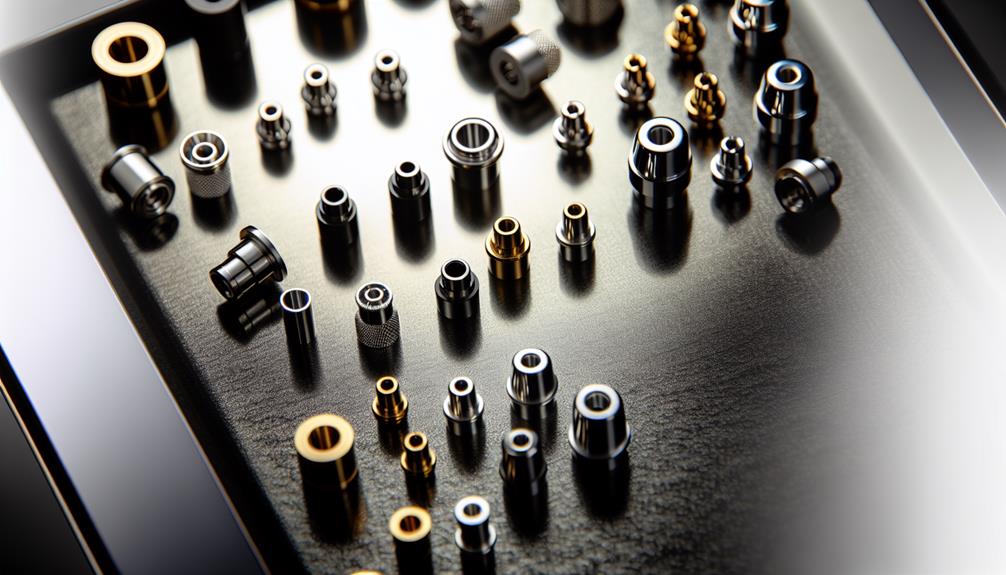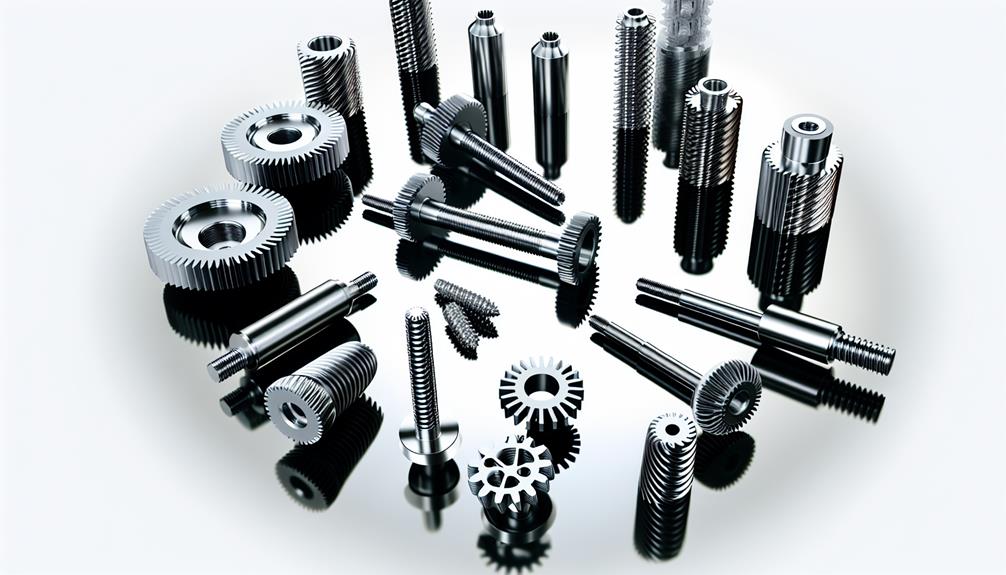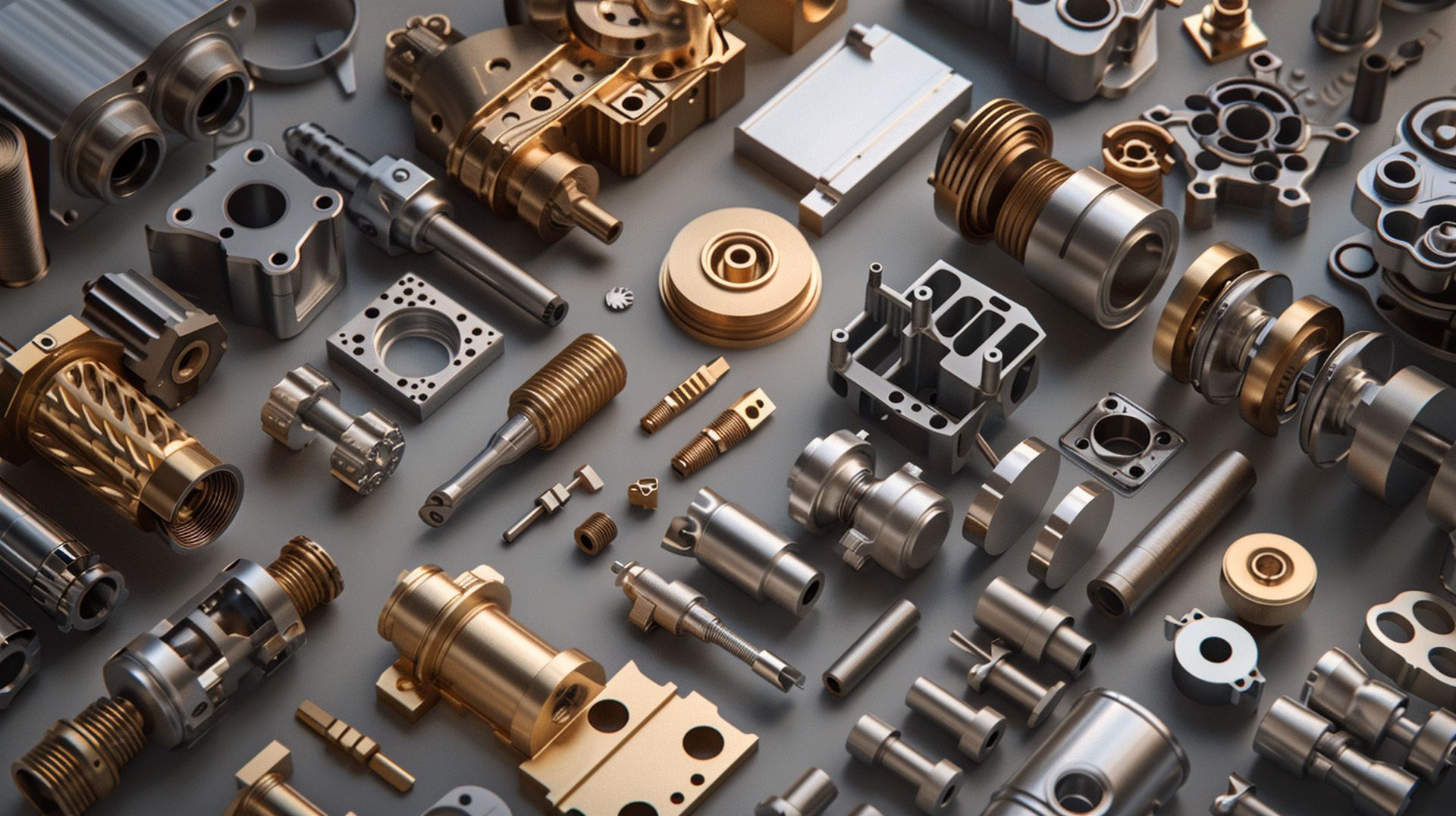What Are Bolts Made Of?
In the realm of construction and manufacturing, the humble bolt plays a key role that is often overlooked. These tiny components are integral to the structural integrity of a vast array of items, from everyday household appliances to towering skyscrapers.
The choice of material used in their manufacture is a decision of paramount importance, directly influencing a bolt's strength, durability, and resistance to various environmental factors. The question of what bolts are made from, then, is not as straightforward as one might initially presume, but rather a complex topic that warrants a closer examination.
To fully appreciate the significance of this seemingly simple object, one must first gain a comprehensive understanding of the diverse materials used in bolt production and the distinctive properties each one imbues.
Key Takeaways
- Bolts are commonly made of materials such as carbon steel, alloy steel, stainless steel, and aluminum, each offering unique characteristics suited for different applications.
- The composition of bolts significantly impacts their strength, durability, and resistance to corrosion, influencing their performance under various conditions.
- Specialized materials like stainless steel, titanium, and brass provide specific benefits such as corrosion resistance, lightweight strength, and environmental suitability for specific industries.
- Sustainable practices in bolt manufacturing, including sourcing methods, recycling initiatives, and sensor technology integration, are shaping the future of bolt material innovation towards eco-friendly and performance-enhancing solutions.
Understanding the Basics of Bolts
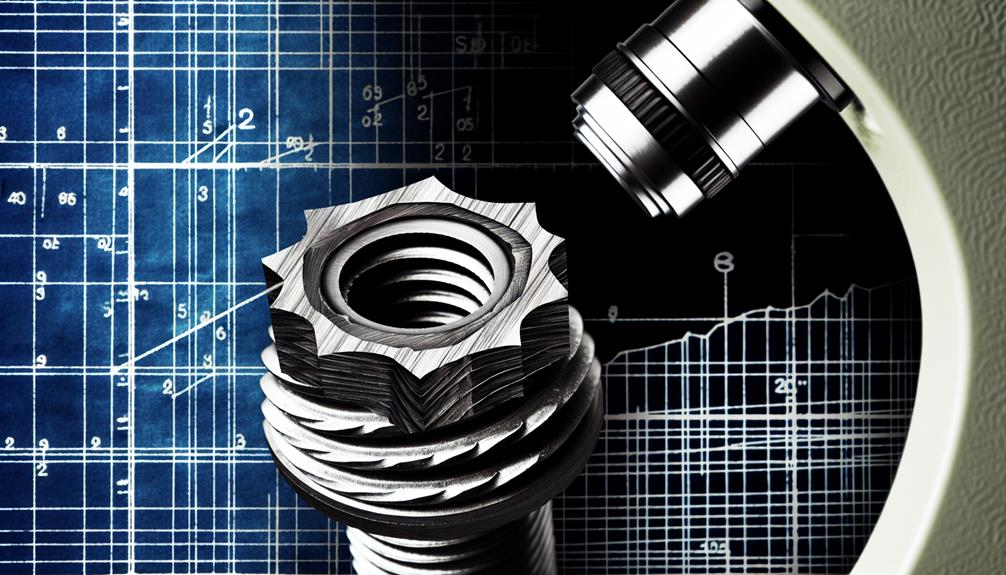
To fully comprehend the functionality and versatility of bolts, it is imperative to first understand their basic structure and attributes. Bolts are an indispensable part of the mechanical world, designed to hold and secure components together. They are commonly characterized by a head and a cylindrical body with external threading.
The evolution of bolts has led to the development of various categories, each designed to cater to specific needs. From structural bolts used in heavy construction to carriage bolts designed for wood applications, the diversity in bolt types is vast. The flange bolt, for instance, is equipped with a circular flange under the head, eliminating the need for a washer. On the other hand, the eye bolt is characterized by a looped head, suitable for securing cables or ropes.
Understanding the various bolt categories and their evolution allows for greater control when selecting the most appropriate bolt for a given task. This knowledge not only ensures the efficient execution of tasks but also contributes to safety and the longevity of the components involved. Hence, it is crucial to comprehend the rudiments of bolts to fully utilize their potential.
Popular Materials Used in Bolt Manufacture
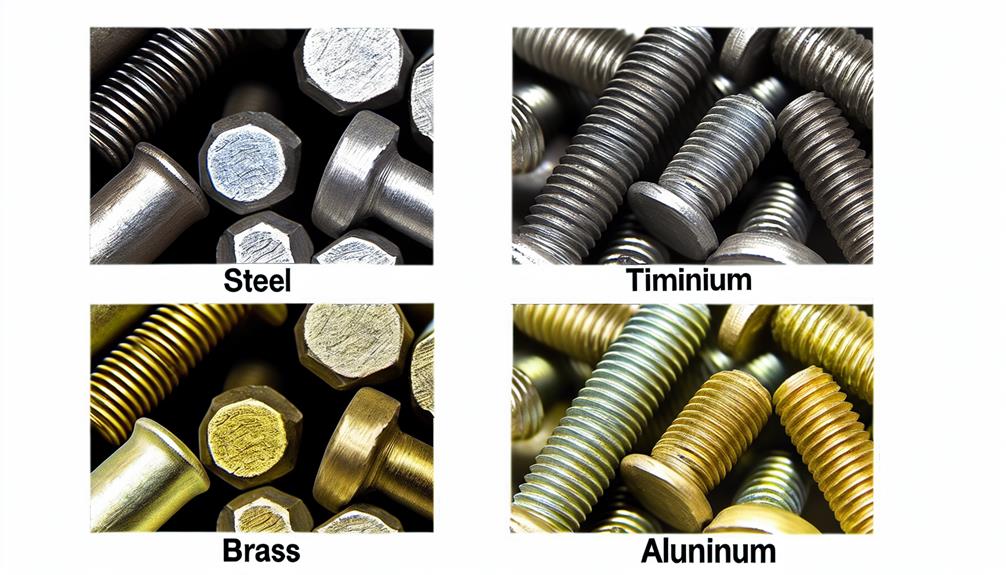
Having explored the various types of bolts and their applications, it is equally important to understand the choice of materials in their manufacture, as this largely determines their durability and performance.
The most commonly used materials in bolt manufacture include carbon steel, alloy steel, stainless steel, and aluminum. Comparing bolt durability, stainless steel and alloy steel bolts are generally more robust and offer superior strength, especially under high-stress conditions. Carbon steel, though less durable, is cost-effective and hence widely used. Aluminum, being lightweight, is used where weight is a concern.
The impact of corrosion is a critical factor influencing the selection of bolt materials. Stainless steel bolts are highly corrosion resistant, making them ideal for applications in corrosive environments, such as marine or chemical industries. Alloy steel bolts, while offering high strength, are more susceptible to corrosion unless treated with protective coatings. Carbon steel bolts also require protective treatments for enhanced corrosion resistance.
The Importance of Bolt Composition
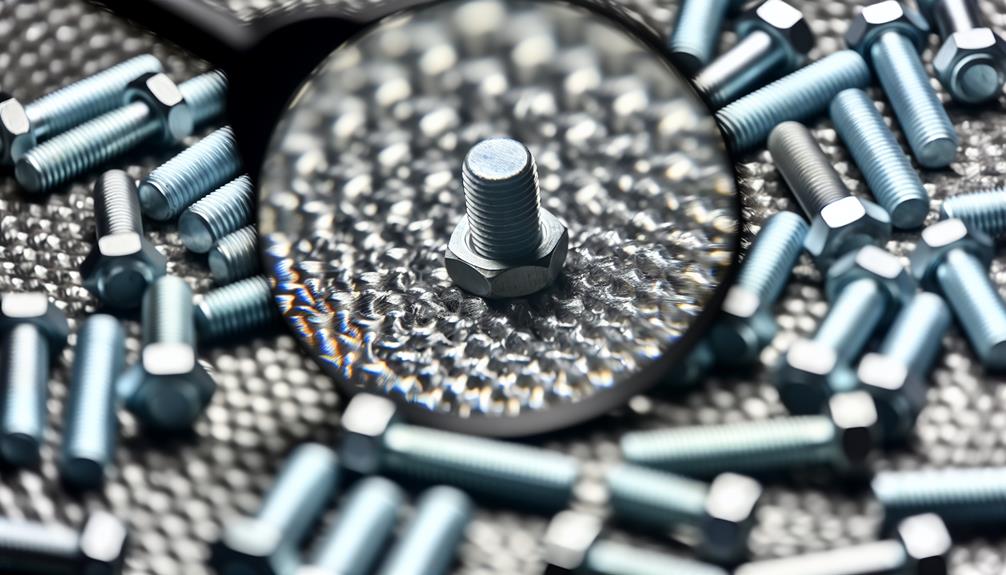
Understanding the composition of bolts is crucial as it dictates their strength, durability, and resistance to environmental factors such as corrosion. It is not enough to merely have a bolt that fits; the composition of the bolt significantly impacts its performance and longevity.
Through a composition analysis, we can determine the specific materials within the bolt, and thus predict its behaviour under various conditions. This knowledge allows us to harness control over the bolt's performance, ensuring Bolt Durability and maintaining the integrity of the overall structure.
To visualize the importance of bolt composition, consider the following examples:
- A bolt made of soft metal may easily shear off under high-tension, leading to structural failure.
- A bolt composed of corrosive-prone material may degrade over time, especially in humid conditions, compromising the longevity of the structure.
- A bolt made of brittle material may shatter under impact, causing immediate structural instability.
Specialized Bolts and Their Materials
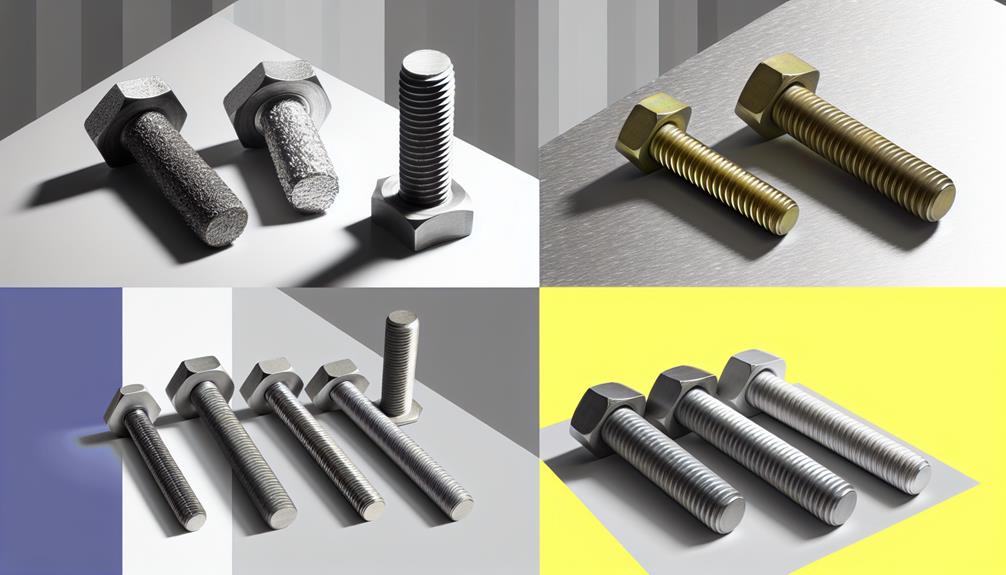
Building upon the importance of bolt composition, we will now explore various specialized bolts and the specific materials they are made of. Industrial Bolt Varieties like stainless steel, titanium, and brass offer unique properties that cater to different applications.
Stainless steel bolts, known for their corrosion resistance, are commonly used in environments that demand durability and longevity. Titanium bolts, on the other hand, are lighter and stronger than most metals, making them ideal for aerospace applications. Brass bolts, while not as strong as other options, provide excellent resistance to corrosion and are commonly used in marine environments.
Sustainability in Bolt Production has become a significant focus in the industry. Manufacturers are increasingly utilizing recycled materials to decrease environmental impact. For instance, stainless steel bolts can be made using recycled steel, reducing the need for mining new resources. Similarly, brass bolts can be produced using recycled copper and zinc.
The Future of Bolt Material Innovation
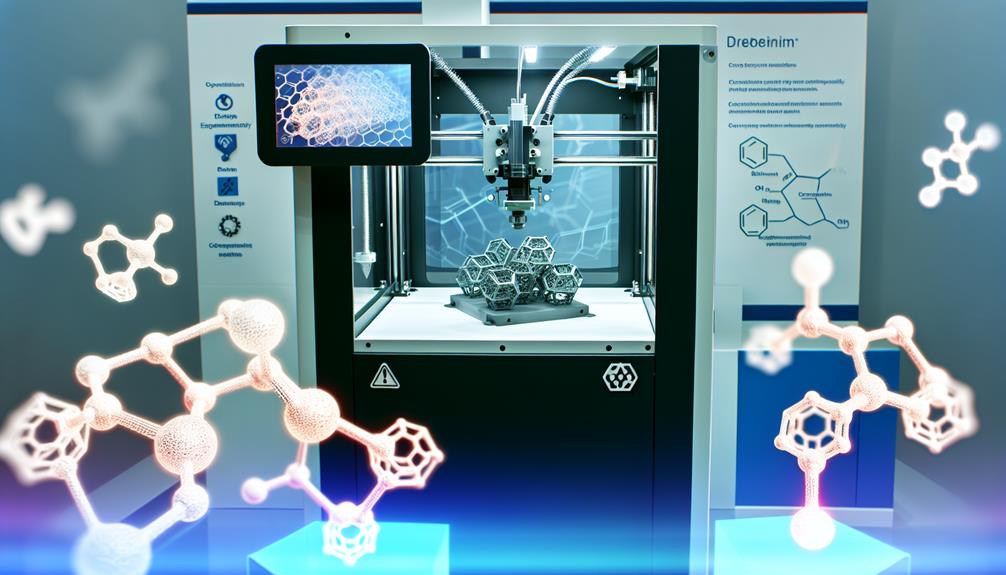
As we delve into the future of bolt material innovation, it's important to anticipate the advancements in material science that could revolutionize the industry. At the forefront of these advancements are sustainable sourcing methods and bolt recycling innovations.
The eco-friendly shift in manufacturing processes is paving the way for sustainable sourcing methods. These new methods will allow producers to source materials in a way that minimizes environmental impact, reduces waste, and fosters responsible consumption and production.
Bolt recycling innovations are also on the rise. The development of processes to efficiently reclaim and reuse discarded bolts will not only save resources but also decrease the industry's carbon footprint.
The advancement of technology is leading towards the creation of smarter bolts. Bolts embedded with sensors that can monitor stress, temperature, and other environmental factors, providing valuable data to enhance safety and predict maintenance needs.
These innovations will enable the industry to take control over its environmental impact while also improving the overall efficiency and effectiveness of bolts. The future of bolt material innovation will undeniably be driven by sustainability, recycling, and technological advancement.
Frequently Asked Questions
How Are Bolts Used in Different Industries?
Bolts, designed for durability and innovation, are integral to various industries. They provide secure fastening in construction, automotive assembly, and aircraft manufacturing, showcasing their versatility in managing heavy loads and withstanding environmental conditions.
What Is the Process of Manufacturing a Bolt?
The manufacturing process of a bolt, a critical facet of bolt innovation, involves material selection and shaping. The procedure includes forging, threading, and coating, ensuring each bolt provides control and reliability for its intended application.
How Can You Determine the Quality of a Bolt?
The quality of a bolt can be determined through examination of its durability and the selection of material used in its construction. Higher quality bolts possess greater strength, longevity, and resistance to environmental factors.
Are There Any Environmental Implications Related to Bolt Production?
Indeed, bolt production can have environmental implications, especially concerning waste and energy use. However, advancements in bolt recycling and sustainable production methods are helping to mitigate these environmental impacts, maintaining balance with nature.
What Are the Safety Precautions Needed When Handling or Using Bolts?
Safety precautions for handling bolts include proper bolt storage methods to avoid accidents, and using Personal Protective Equipment (PPE) like gloves and safety glasses to protect against potential injuries during use and installation.
Mikehardware-your trusted custom bolts manufacturer
In essence, the composition of bolts, often underestimated, holds significant value in context of durability, application, and performance.
The journey from commonly-used steel to specialized materials like titanium and Inconel, underscores the relentless pursuit of innovation in the manufacturing sector.
Future advancements in bolt materials, driven by the imperatives of sustainability and enhanced efficiency, are poised to redefine the landscape of construction, engineering, and various other industries.
At Dongguan Mike Hardware Co., Ltd., precision engineering meets innovation, delivering impeccable CNC product manufacturing solutions. Explore our array of customized fasteners, screws, and coatings, ensuring your projects excel in performance, precision, and quality.

